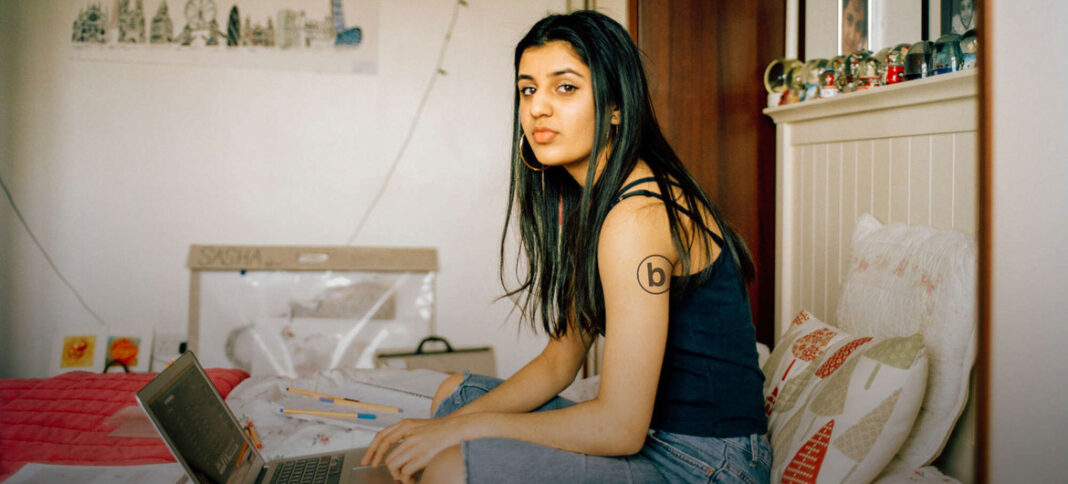“It’s time for technology companies and policymakers to take digital violence seriously”, said UNFPA Executive Director Natalia Kanem -“right now”.
The bodyright campaign highlights that corporate logos and copyrighted IP are more highly valued and better protected online than images of human bodies, which are often uploaded to the Internet without consent, and used maliciously.
The ⓑ symbol – which can be added to any image directly via Instagram stories using stickers, or by downloading it from the webpage – aims to hold policymakers, companies, and individuals to account while simultaneously driving the message that women, girls, racial and ethnic minorities, the LGBTQ+ community, and other marginalized groups are valued and will not be violated online.
The new frontier
Relentless, borderless and often anonymous, Dr. Kanem called the online world “the new frontier for gender-based violence”.
And the reality is that people do not own their bodies online.
From cyberstalking and hate speech, to so-called doxxing (publishing private or identifying information about an individual) and the non-consensual use of images and video, such as deepfakes (whereby a person in an existing image is replaced with someone else’s) – online violence is rife.
Many countries lack laws which make online violence illegal, leaving anyone trying to remove exploitative images of themselves with few legal rights, and a long process for those who try to enforce those rights which do exist.
Human rights infringement
When someone infringes on music or film copyright, digital platforms remove the content immediately.
Governments have passed laws making copyright infringement illegal and digital platforms have devised ways to identify and prevent unauthorized use of copyrighted material.
These same protections and repercussions must also extend to individuals and their photos, says UNFPA.
Online violence repercussions
- Nine-out-of-10 women report that online violence harms their sense of well-being.
- More than a third of women state that cyber violence has led to mental health issues.
- Digital violence inhibits authentic self-expression, and adversely impacts the professional and economic livelihoods of people who depend on online and social media spaces.
- Online violence silences the voices of women.
The bodyright campaign
From London and of Ghanaian and Nigerian heritage, award winning poet and spoken-word artist Rakaya Fetuga, has authored and performed poetry for the campaign that communicates the impact of online violence and the novel concept of bodyright.
And to advocate for action from Governments, policymakers, tech companies and social media platforms, UNFPA has launched a Global Citizen-hosted petition, that demands tangible action to end digital violence and abuse.
16 Days of Activism
The bodyright initiative is part of the wider 16 Days of Activism against Violence Against Women campaign, which runs until 10 December.
UNFPA has also launched “The Virtual Is Real” website, which features stories of victims and survivors of digital violence from around the world, alongside innovative work done by UNFPA to address this human rights violation.
According to the Economist Intelligence Unit, 85 per cent of women with access to the internet reported witnessing online violence against other women, and 38 per cent have experienced it personally.
Moreover, some 65 per cent of women surveyed have experienced cyber-harassment, hate speech and defamation, while 57 per cent have experienced video and image-based abuse and ‘astroturfing’, where damaging content is shared concurrently across platforms.
UN News.
